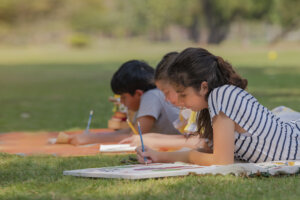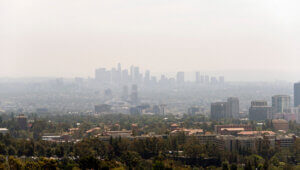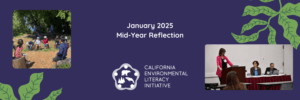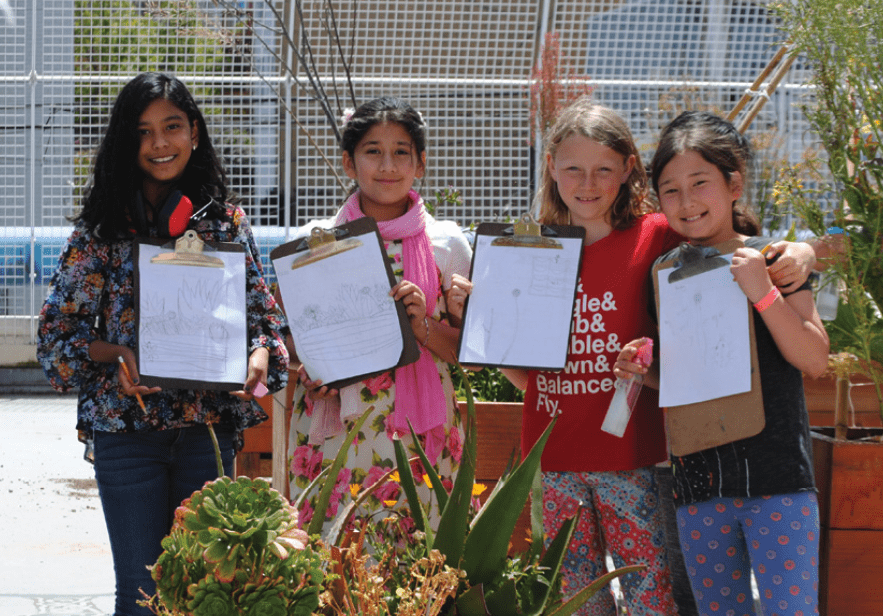While environmental education often gets pigeonholed as just for science instruction, teaching about the environment is meant to be interdisciplinary. In California, no subject area holds sole responsibility for environmental literacy, and through the Environmental Principles and Concepts (EP&Cs), we see a call to integrate environmental and climate literacy into all of the core subject areas (science, history social studies, math, English language arts), visual and performing arts (VAPA), and health. Environmental education can also be integrated into world languages and physical education.
We at CAELI have been eager to support educators with making connections to environmental literacy beyond science. Members of CAELI Innovation Hubs and Initiatives recently presented at conferences focused on English language arts, career technical education, and social studies to demonstrate ways that all educators can increase their students’ knowledge of environmental issues and empower their students to be agents of positive change.
Read about these presentations and get access to the resources below!
English Language Arts
CAELI members Tara Kajtaniak (Alder Grove Charter School) and Peggy Harte (UC Davis) presented their project, Environmental Superheroes of the English Classroom, at the California Association of Teachers of English Conference in Burlingame at the end of February. Their presentation included guest speaker Marivell Arayasirikul, who was featured in the first season of the Environmental Superheroes of the ELA Classroom podcast series, and highlighted the amazing work of additional California TK–12 educators who teach environmental literacy and justice through the lens of reading, writing, listening, and speaking. Podcasts and snapshots of their inspiring work are available on the CAELI Resources page. Stay tuned as more stories are released in the second season of the Environmental Superheroes of the ELA Classroom.
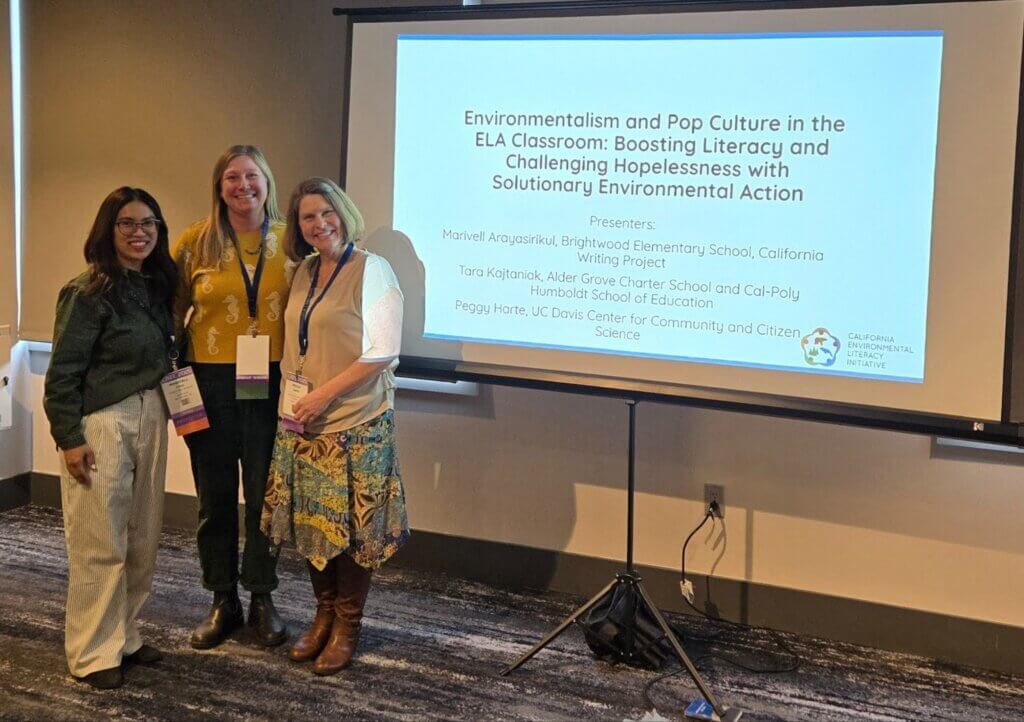
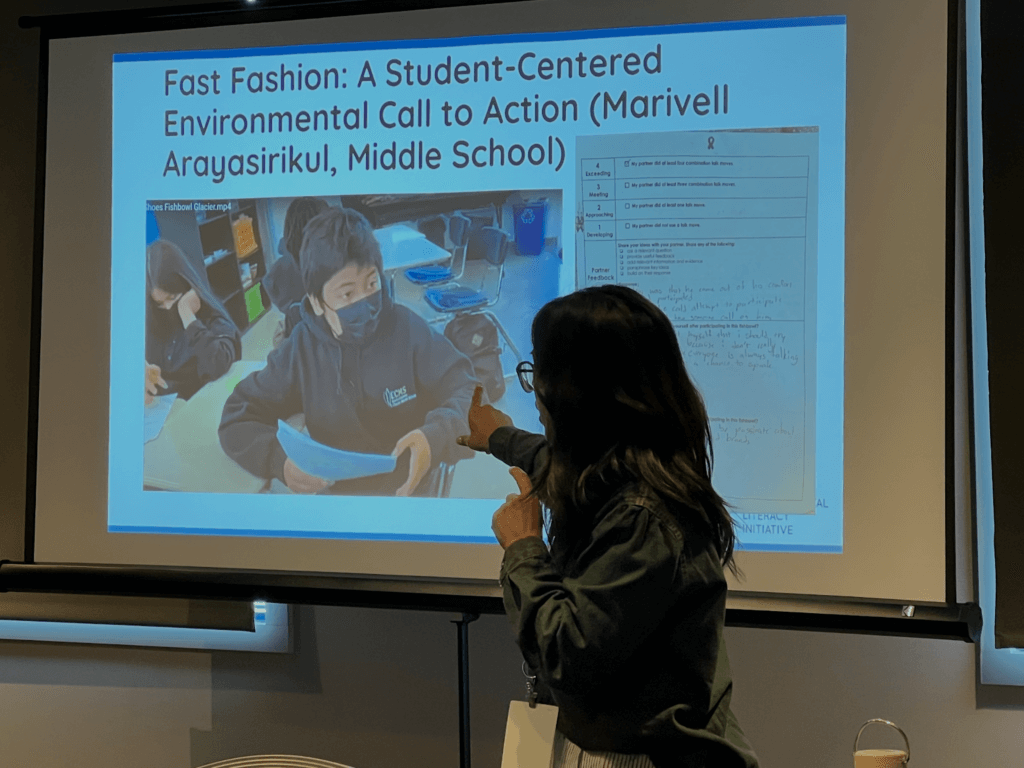
Career Technical Education
On March 2, 2025, Sarah Whiting, Ten Strands’ director of client engagement and data science, presented on the importance of adding green career awareness and skill building to career technical education (CTE) pathways at the Educating for Careers annual conference in Sacramento. Based on the call to action produced by CAELI in 2024, the presentation focused on the educational, economical, and environmental imperatives for green career education as well as the barriers and successes those who are already engaging in this work have experienced. A highlight of the presentation was hearing from Bahar Pahlevani, senior project coordinator at The Energy Coalition, about the great programs and resources available through Energy is Everything. Attendees also mentioned that access to resources on how to integrate green careers into their pathways was especially useful.
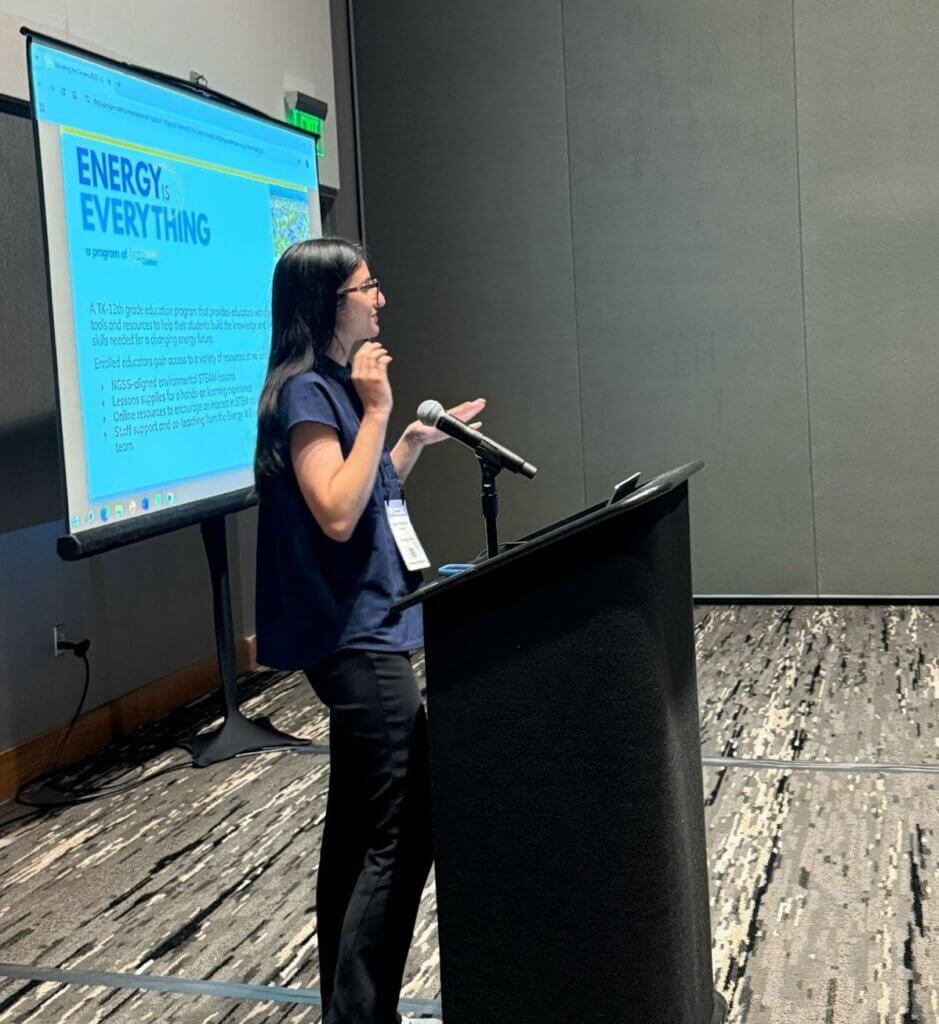
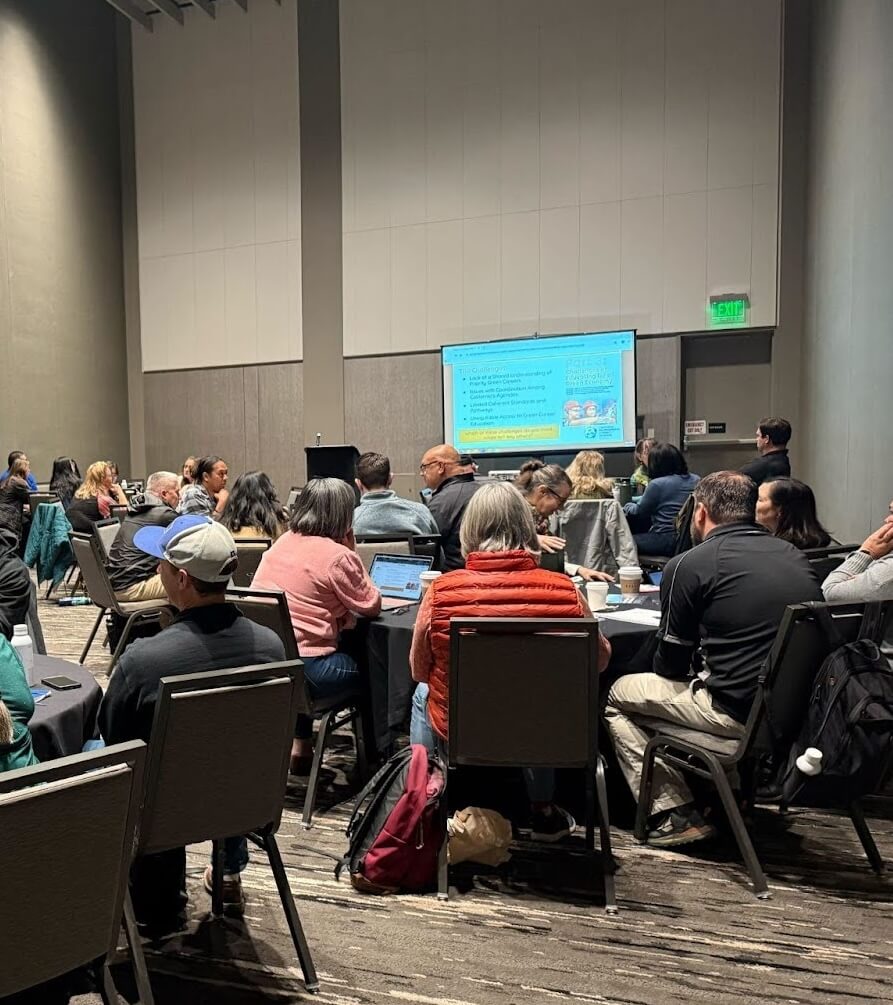
Social Studies
On March 7, 2025, chief innovation officer Andra Yeghoian led a workshop, titled “Empowering Changemakers: Integrating Civic Engagement and Environmental Literacy in Social Studies,” at the California Council for the Social Studies (CCSS) annual conference. The session centered around strategies for empowering educators to foster student agency, promote civic knowledge, and address the environmental and climate crisis. In addition to examining the connection between history social studies and the Environmental Principles and Concepts (EP&Cs), the session also featured resources from the California Environmental Literacy Initiative (CAELI), such as the “State Seal of Civic Engagement Environmental Literacy Implementation Guide,” the call to action for educators and teachers, and the CAELI Partner Portal. Furthermore, the session highlighted Ten Strands resources from the California Youth Climate Policy (CYCP) Leadership Program that could be adapted by classroom teachers to support students in leading solutions-oriented civic action.
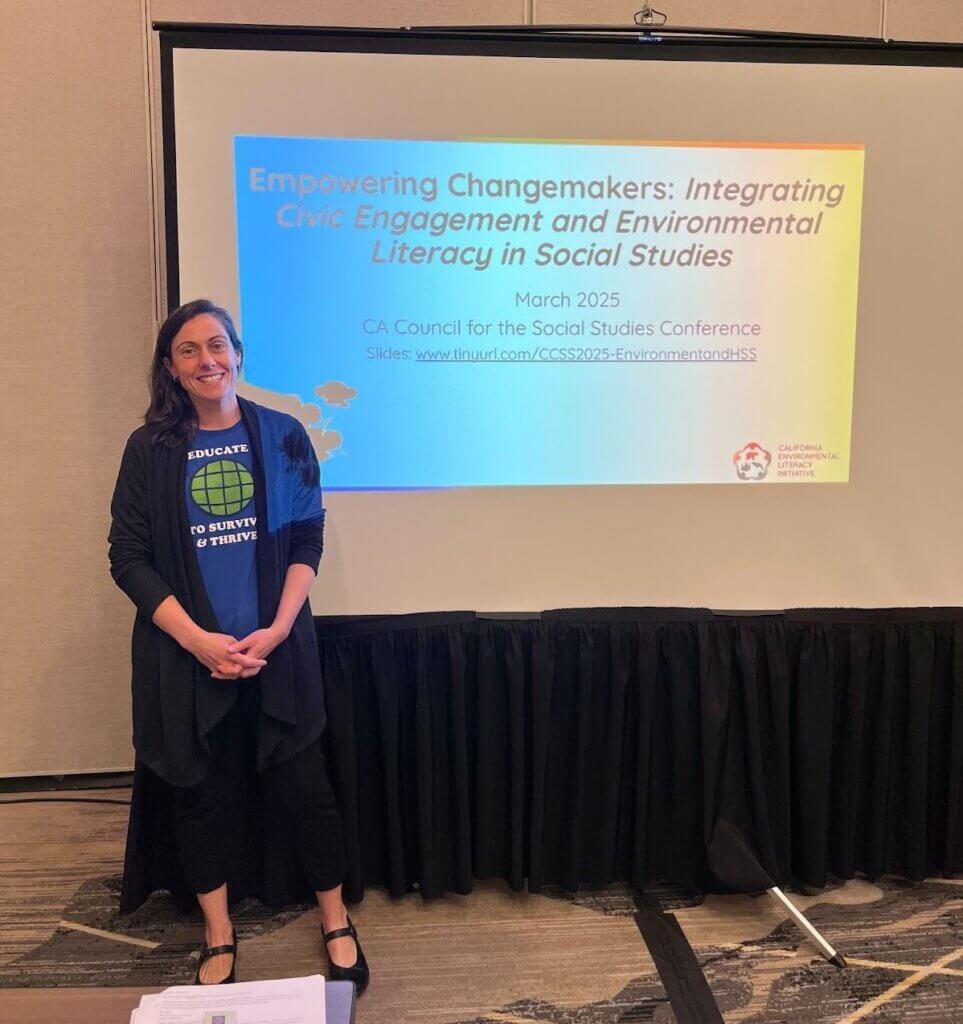
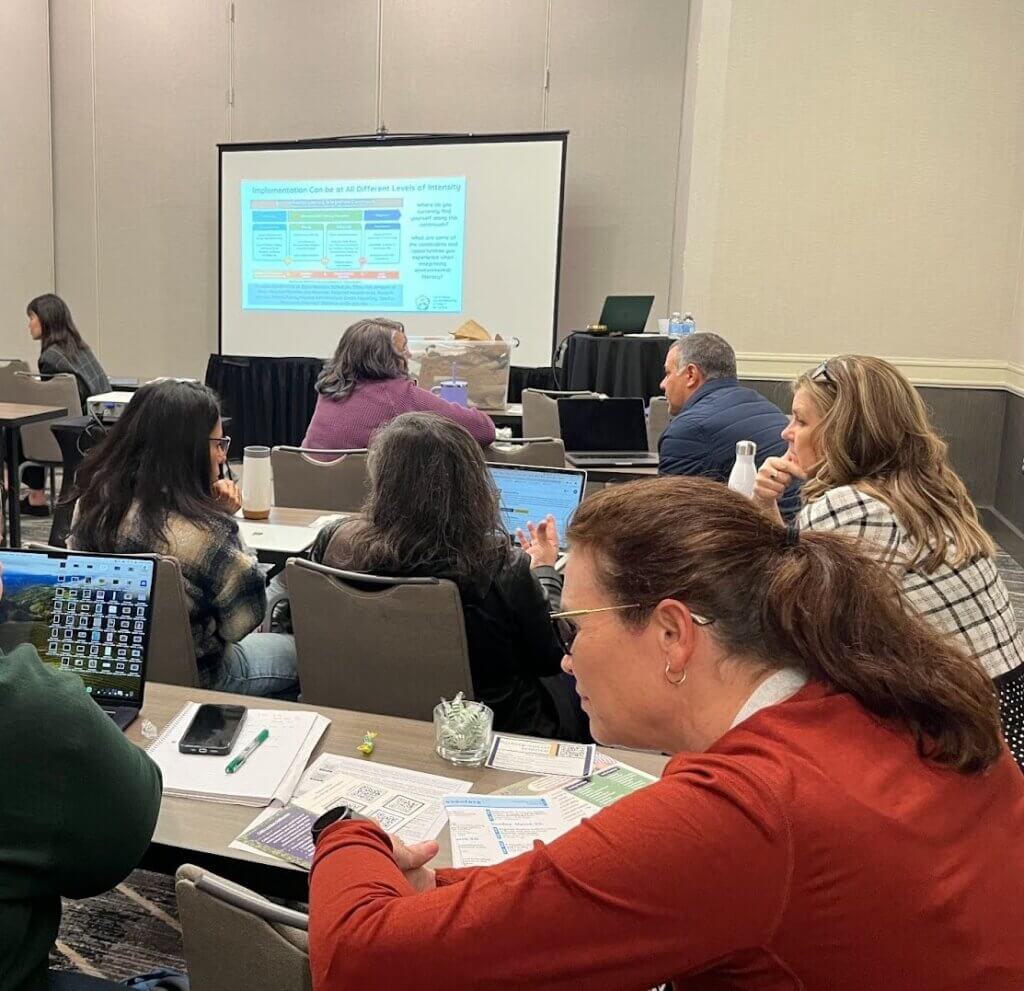
More CAELI resources that support environmental literacy in science and beyond:
For educators that want to continue exploring CAELI resources that support environmental literacy in science and beyond, please check out the following resources that were developed in the last few years:
“Environmental Literacy Implementation Guide for the State Seal of Civic Engagement”: Supports districts, schools, and teachers with integrating environmental action into their implementation of the State Seal of Civic Engagement. The guide includes attention to academic achievement, civics knowledge, community action projects, and self-reflection.
Green Career Initiative Webinar Series: The series focuses on how career pathways have gone green, the market needs for the green economy, and examples from the field of schools and districts that have integrated green into this career pathway. Check out the first webinar featuring green career pathways within the energy, environment, and utilities sector.
District Innovation Hub Webinar Series: Highlights different ways that districts are integrating environmental and climate literacy and action across their school communities. Check out recent curriculum-related webinars here: “Climate Literacy Principles & Guidelines” (February 2025), “Environmental Literacy: the Key to Authentic, Rigorous, and Engaging Learning” (January 2025).
A Teacher Call to Action for Environmental Literacy: A three-part publication developed for educators by educators. “Part 1: The Imperatives for Environmental Literacy” defines the field and recounts its development in California. “Part 2: Voices from the Field” presents case studies of effective instruction at every grade level. “Part 3: Roadmap for Instruction” describes steps to increase environmental literacy integration. Discussion and reflection questions in each section will help move along your practice, individually or with your colleagues.
AB 285 Climate Science Education Toolkit: The CAELI County Office of Education Innovation Hub developed this introductory tool to support county offices of education, districts, and schools to understand the requirements of AB 285 and begin taking next steps for implementing grade-appropriate climate change curriculum.
For more, explore our full suite of resources!


